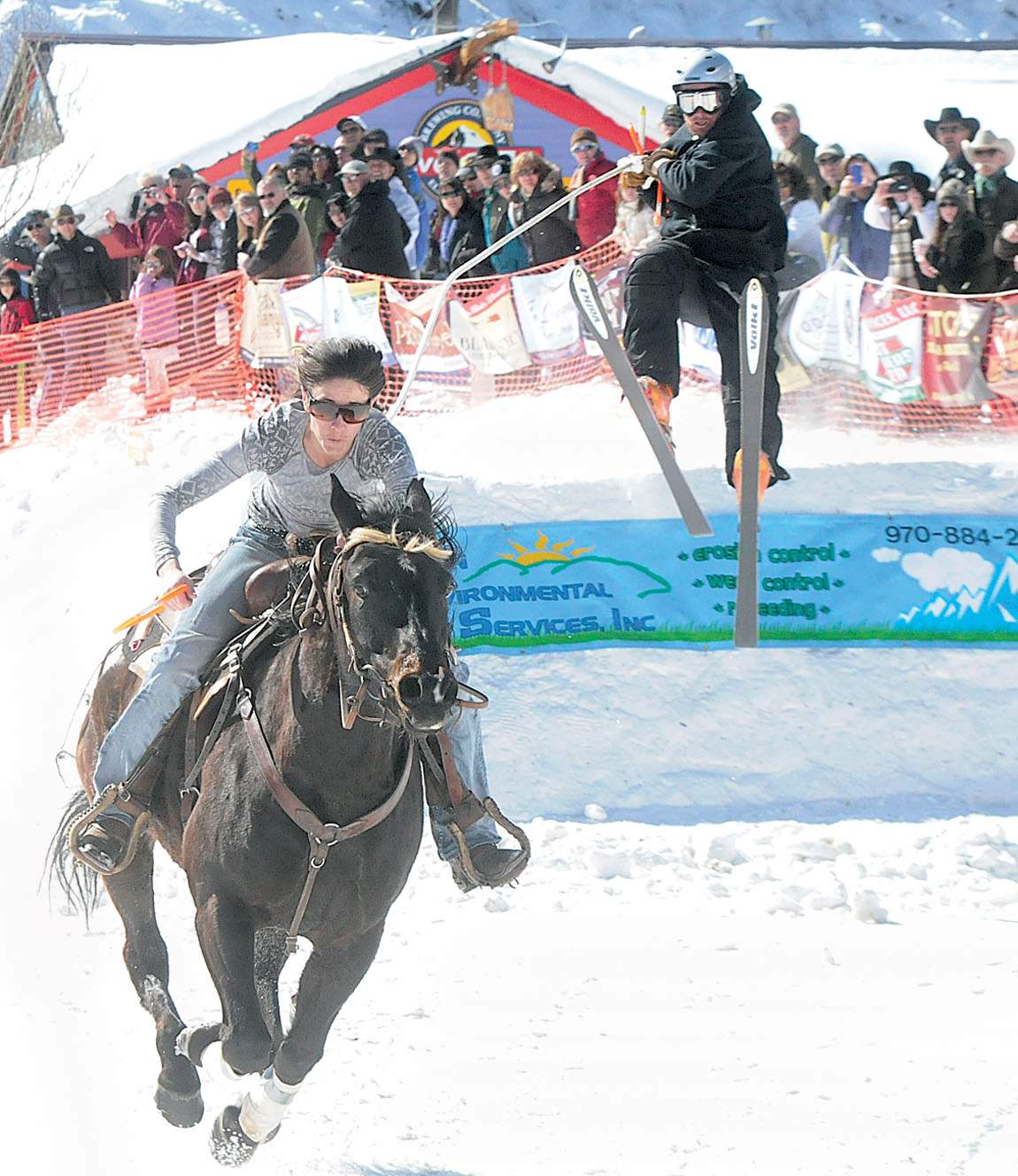In the one-woman show “The Secret Lives of the Divine,” Sarah Syverson plays 12 characters, six of them main characters who take the audience along in their spiritual journeys. There’s Miranda, the spiritual course junkie; Stella, the New York Jew on her first Zen retreat; Jeremiah, an old Southern bum living down by the river, talking with the Good Lord, both of them drunk on whiskey; Henry, an 8-year-old who confronts the monsters under his bed; Catherine dying of cancer; and Jamal, a guru customer service rep. Each has their own arc and way of connecting with God, the universe, the cosmos or the divine.
Syverson wrote the play eight years ago and performed it off and on for two years across Colorado, at the Boulder Fringe Festival and in New Mexico.
She has since written and performed another one-woman show, “Growing: Adventures in Food and Farming,” in 2014, presented by the Merely Players. She has also become a mainstay at KSUT radio in Cortez as well as co-founded and produce The Raven Narratives, a storytelling series ready for its fourth show this year in Cortez and Durango.
Syverson reprised “Secret Lives” to give it another life, wanting to see a full run in Durango – the first time around saw just two one-night-only performances here. It’s also a fundraiser for the Dharma Center, where Syverson is active, a place that is “right in alignment with what the show is.”
The show, which plays October 14 at 7:30 p.m. and October 15, at 3 and 7:30 p.m. at the Durango Arts Center, has also always held a special place for her, said Syverson, who, seemingly unaware, can slip into the persona of one of the show’s characters when discussing them.
“It’s the first show that I wrote and I still love it so much,” she said. “So there’s something about it that I’m still passionate about, the topic and the contents and how it makes me feel when I perform it.”
We spoke with Syverson about how the show is different this time around, how she has grown as a performer and why it’s necessary to have a sense of humor about our spiritual journeys.
How has the show changed since when you first performed it?Timing and space. I did more editing out of content and words. More showing and less telling. It’s challenging with a one-woman show because there’s one person on stage so monologues could get really long and dry. You need a diversity in tempo and pace and characterizations. The first time around when I was writing it, looking back I can see that there was a certain sense of feeling terrified of being onstage so wanting to have each character fully explain themselves. It’s just kind of editing down and creating more space for each of the characters. Just relaxing more into each of the characters.
How have you developed as a performer since the last time you did this show?It has to do with that space. I’m in a more relaxed place in my life. I’m more relaxed on stage – not to say at all that I don’t get nervous, because I do. Now that I’ve [performed] with several scripts and in several different formats and I’ve also spent a lot of time on the radio doing [KSUT’s] “The Big Fat Farm Show,” I’m teaching an improve class in Cortez, and I did some improve work at Second City in Chicago as well, so the biggest thing would be a sense of relaxation. That leads to more enjoyment on stage with the characters and being the characters. Just the whole process of relaxing a little bit and letting things be more than trying or forcing.
What is the most challenging part of the show for you?Part of it is the shifts between characters. There’s some really distinct ones. For example, Stella. She’s very loud and very brash. She gets calmer over time. But to go from her to Catherine, who is one of the more serious characters in the show … she’s dying of ovarian cancer ,and so that’s a big shift. There’s music in between that helps move that, the changing of the costumes, the posture, but those transitions are big. The energy it takes to be on stage that long, it’s like running a half-marathon.
What’s something you hope the audience gets from the show?That there’s a sense of humor that we have about that journey or that path to the divine. One of the original reasons I wrote this show was a sense of feeling like we get so serious about our spiritual practice that we can’t laugh at ourselves and loosen up, to have a connection with that divine source and have sense of humor about the journey.
Why do you think we’re serious about those things and why is it important to be able to have a sense of humor about them?For me I have a sense of earnestness. I want to be a good student. Part of it is cultural. Growing up in a church where on Sunday you dress nicely, you sit nicely in the pew and very respectful and try your hardest. And then you get out of Sunday school and rip off your really uncomfortable polyester clothes and you’re really tight shoes and you go play. And God isn’t in that realm where you play. You meet God at church and then you get to go play afterwards. And that just feels like the craziest dichotomy that’s not actually true. It feels like God is in the playground more than he is in the church a lot of times.
This interview has been lightly condensed and edited for space.












